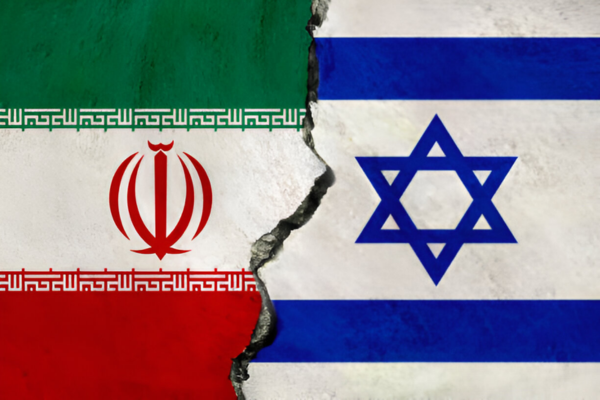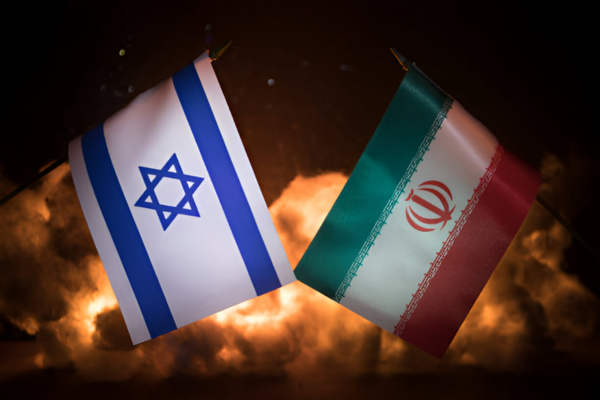June 18, 2025 – DUBAI/JERUSALEM – The Israel Iran air war has entered a dangerous phase, with Iran’s Supreme Leader, Ayatollah Ali Khamenei, dismissing President Donald Trump’s demand for unconditional surrender. As Israeli airstrikes intensify, Tehran has descended into chaos, with thousands of residents fleeing the city to escape the mounting violence.

Rising Tensions and Escalating Military Action
The Israel Iran air war is intensifying. After Khamenei rejected Trump’s call for surrender, Israel launched a series of airstrikes on key Iranian sites. Israeli jets have hit Tehran’s missile and nuclear installations, making the situation far more dangerous. There is no sign of an impending peace deal, and the war is getting worse every hour.
Iran’s Response and the Growing Cost of War
Not long after Israel’s latest air raids, Iran struck back. Missiles were fired from inside the country, some breaking through Israel’s defenses. The damage? Civilian homes destroyed. Lives lost. On both sides now, people are paying the price for a war that’s spinning further out of control. Each day adds to the count — more injuries, more funerals, more fear. And still, no one’s talking peace.
Global Concern and Warnings from World Leaders
World leaders are sounding the alarm. Russia has called the situation a step away from catastrophe. Germany, meanwhile, is urging Iran to come to the table and prove it isn’t chasing nuclear weapons. Behind the scenes, diplomats are scrambling. But with missiles still falling and people dying, the window for talks keeps shrinking. Right now, fear is spreading faster than any agreement.
Civilians on Both Sides Are Paying the Price
In Tehran, highways are jammed with families trying to get out. Some are heading to nearby towns, just hoping to stay safe for a while. One woman said her friend’s house was hit — her brother injured. “We’re not part of this,” she said. “But we’re the ones getting hurt.”
Meanwhile, in Israel, sirens keep going off. People are sleeping on floors in train stations, clutching babies, waiting for the next missile to fall. Fear is everywhere. And shelter is running out.
Risk of a Wider War
With every strike, the stakes climb higher. Trump left the G7 early and rushed back to Washington. Behind closed doors, his team is weighing next steps — and some involve joining the fight. Iran has warned it won’t hold back if the U.S. steps in. It already sees America as part of what’s happening.
At the same time, Iran’s hinting it could use the Strait of Hormuz to put pressure on the world. That waterway moves a big chunk of the planet’s oil. Shutting it down would shake global markets.
Strait of Hormuz and Oil Market Concerns
Iran hasn’t made a move yet, but the threat is clear. If the war gets worse, it could block the Strait of Hormuz — the narrow waterway where much of the world’s oil flows through. A shutdown there wouldn’t just hit gas prices. It would ripple through economies everywhere. Oil experts are watching closely. So are traders. One wrong step, and it’s not just a regional war anymore — it’s global.
A Hidden Agenda Behind “Operation Rising Lion”?
Israel’s ongoing military campaign has been branded “Operation Rising Lion,” a name that raised eyebrows from day one. Prime Minister Benjamin Netanyahu introduced it after placing a handwritten note at Jerusalem’s Western Wall — a quote from scripture referencing a lion devouring its prey. For many, that alone hinted at something deeper.
Some analysts and insiders now believe this war isn’t just about missiles or nuclear sites. They suspect the name “Rising Lion” is more than a symbol of strength. It might be a coded signal tied to a much bigger plan.
Echoes of a Royal Past
The “lion” has strong political roots in Iranian history. It’s not just a biblical or poetic image. Before the 1979 revolution, Iran’s national flag featured the Lion and Sun — a powerful symbol of the Pahlavi monarchy. And that symbol hasn’t disappeared; it lives on in the hearts of monarchists and on the banners of protest movements abroad.
So when Netanyahu names a war campaign using lion imagery, people noticed. And they’re asking: is Israel quietly backing a return of the monarchy?
A Clear Beneficiary: Reza Pahlavi
Crown Prince Reza Pahlavi, the exiled heir of the late Shah, has been increasingly vocal. He’s called on Iranians to rise up. He’s spoken about regime change. And while he doesn’t openly call for the full restoration of the monarchy, many of his supporters do.
Pahlavi’s image has re-emerged across Persian social media. His recent visibility — including his daughter Iman’s widely publicized wedding to Jewish-American Bradley Sherman — has reignited talk of royal legitimacy, modern identity, and a possible return.
Netanyahu’s Messaging: Strategic or Symbolic?
Netanyahu has gone beyond military language. He’s publicly referred to Khamenei as “a modern Hitler” and has spoken of “freeing the Persian people.” While Israel has not officially endorsed regime change, Netanyahu said that toppling Iran’s leadership might be an outcome of this war.
His phrasing, paired with symbolic moves like quoting scripture, suggests there’s more at play than simple retaliation. For some observers, this war could be setting the stage for something more — perhaps not a coup, but a reshaping of Iran’s future leadership, with Reza Pahlavi waiting in the wings.
What Comes Next?
The Israel Iran air war is no longer just a military standoff. With coded signals, shifting alliances, and whispers of regime change, this conflict is writing a new chapter in Middle Eastern history. What began as airstrikes and rhetoric has now pulled in global powers, old symbols, and deeper ambitions.
For millions caught in the middle, none of that matters as much as safety. But for those watching from the outside, it’s hard not to wonder — is this war just about stopping Iran’s nuclear program, or is it also about deciding who controls its future?
Sources:
- Netanyahu calls Khamenei ‘modern Hitler’
- Will Israel’s strikes on Iran bring about regime change?
- Netanyahu hints regime change in Iran may result from attacks





